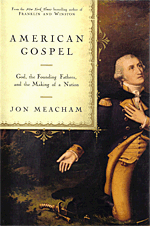![George_Eliot[1]](https://ronhenzel.files.wordpress.com/2013/01/george_eliot1.jpg?w=169&h=204)
Mary Ann Evans (1819-1880), a.k.a. George Eliot, at 30, by Swiss artist Alexandre Louis François d’Albert Durade
 For this series of posts I will use the word “literature” in the most general possible sense, as opposed to the limited category of fiction and poetry. Essentially this means that what I write about on Saturdays will be anything I read that does not fall under one of my other six standard categories (Bible, Greek, Hebrew, Theology, Philosophy, and History). My “Miscellany” category is reserved for random things I write about on an irregular basis. Continue reading
For this series of posts I will use the word “literature” in the most general possible sense, as opposed to the limited category of fiction and poetry. Essentially this means that what I write about on Saturdays will be anything I read that does not fall under one of my other six standard categories (Bible, Greek, Hebrew, Theology, Philosophy, and History). My “Miscellany” category is reserved for random things I write about on an irregular basis. Continue reading



 With this post I am plunging into Plato’s (c. 424-c. 347
With this post I am plunging into Plato’s (c. 424-c. 347 
 Normally books on addiction fall under the heading of psychology, medicine, or (most often) the ever-popular “self help.” The first word in that last category aptly summarizes the predominant focus and foundational value of the addiction literature genre, which has little if anything in common with any worldview that one might derive from Scripture.
Normally books on addiction fall under the heading of psychology, medicine, or (most often) the ever-popular “self help.” The first word in that last category aptly summarizes the predominant focus and foundational value of the addiction literature genre, which has little if anything in common with any worldview that one might derive from Scripture. 
 Happy New Year, everyone!
Happy New Year, everyone!